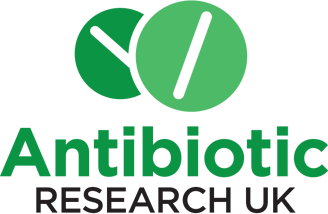Aims to find at least one drug before end of decadeAntibiotic Research UK
Date: 15 October 2014– Bacteria are now making antibiotics ineffective. Surgery as we know it today will become impossible – new hips, knees, organ transplantation and many cancer treatments will become high risk. To tackle this impending medical catastrophe a new national charity ‘Antibiotic Research UK– developing new antibiotics’ (Twitter; acronym ANTRUK) has been formed by a group of scientific experts from 14 of the country’s top universities and 14 biotech companies to tackle this important health problem. It is estimated that there are 400,000 cases of reported antibiotic resistant infections with 25,000 deaths each year in the European Union; in the UK the figure is close to 5,000 deaths per year. 35,000 people die each year from sepsis of which a proportion can be directly linked to infection with antibiotic resistant bacteria. Even a simple scratch will kill if we don’t have effective antibiotics.
ANTRUK has ambitious goals to reverse the decline in antibiotic drug development given the lack of appetite among ‘big pharma’ to find new therapies. This is critical as the WHO believes antibiotic resistance threatens a global situation as serious as the AIDs epidemic; this has been supported by the UK’s Chief Medical Officer Dame Sally Davies and the Prime Minister.
ANTRUK aims to raise funds to finance five new scientific programmes with the aim of developing at least one new antibiotic therapy in the next 5-7 years and further antibiotics from 2020 onwards. The charity’s scientific and technical panel will identify the five projects and ask the public to decide which project to donate to. This novel method of fundraising provides a direct link between public donors and the projects they are supporting. The charity aims to raise up to £30 million in the five year time period through a combination of traditional fundraising, corporate sponsorship, trusts and foundations as well as newer fundraising methods such as crowd funding and the use of social media.
Professor Colin Garner, the Charity’s Chief Executive said “The UK’s charity sector has been extremely successful in raising funds for medical research and we hope to tap into this success; if we don’t tackle the problem of antibiotic resistant bacteria now then the consequences will be far, far worse than the current Ebola outbreak. The charity, because it is non-profit making, can undertake research which is of no interest to commercial enterprises. We are asking the UK public to assist us in achieving our goal.”

There are more germs on a £1 coin than a TOILET SEAT – but only 20% of people wash their hands after handling them 26,000 bacterial colonies and UK notes were among the dirtiest – Daily Mail
Professor Sir Anthony Coates, one of the world’s leading experts in antibiotic resistance bacteria and Professor of Medical Microbiology at St George’s, University of London and one of the charity’s Trustees says “This new charity provides a unique opportunity to engage with the public and patients in partnership to find new drugs or to re-examine the potential of existing drugs.”
Share Now


You must log in to post a comment.